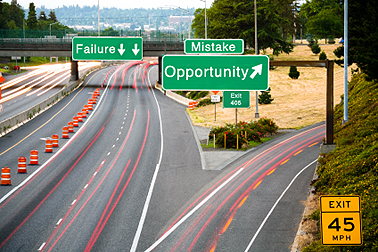 My youngest broke his ankle
playing football this past fall. On a sweep around the left end of his
offensive line, he was hit from a couple of different angles that twisted his
leg and then was tackled by a low hit on his leg. Too much twisting and the
impact of the last hit caused a fracture in the bone. Of course we ended up in
the radiology unit of the local hospital for an x-ray of the damaged
leg. It is interesting that whenever there is a question about damaged bones,
we expect to have an x-ray taken to confirm or deny a break.
My youngest broke his ankle
playing football this past fall. On a sweep around the left end of his
offensive line, he was hit from a couple of different angles that twisted his
leg and then was tackled by a low hit on his leg. Too much twisting and the
impact of the last hit caused a fracture in the bone. Of course we ended up in
the radiology unit of the local hospital for an x-ray of the damaged
leg. It is interesting that whenever there is a question about damaged bones,
we expect to have an x-ray taken to confirm or deny a break.
It is funny that the x-ray came
about as a mistake. Wilhelm Rontgen was a professor of physics in Würzburg,
Germany. On November 8, 1895, Rontgen was testing a cathode ray to see the
impact it would have as it passed through glass. He accidentally pointed a beam
of electromagnetic energy onto a chemically coated cardboard screen and noticed
that it glowed when the lights were out. Rontgen then began to experiment with
x-rays in his lab. He made an x-ray of his wife’s hand, finding that the
electromagnetic beams could pass through flesh, but did not penetrate bones.
Rontgen’s experiments with the photography of bones opened up a revolution in
medicine, creating a new field of practice in radiology that is central to
proper diagnosis today. Without his accident, we might not have a host of
imagining technology that make diagnosing medical conditions possible.
Rontgen was awarded the first Nobel Prize for physics in 1901 for his
discovery.
What have you discovered from your mistakes? Obviously not
every mistake opens a new industry, but there are plenty of examples where a
seemingly wrong turn has turned into best practices down the road. Do you look
at mistakes as the worst thing that can possibly happen to you or are they
opportunities for growth? There are no perfect people and there are no perfect
businesses – which are just groupings of imperfect people. Your business is
going to misfire every now and then. Goals are going to go unmet. Best
intentions will go wrong. It just happens. What do you do with the failed
attempts? Do you grit your teeth and vow to never let it happen again? Do you
ignore the issue like it never really happened in the first place? Do you scheme
up some incredible spinning story to try to convince everyone that the mistake
was actually not what it seemed to be? Or do you just blame someone else for
their shortcomings in an attempt to try to distract attention away from you? In
a society that has anesthetized itself against feeling any pain, let me say
something that may sound odd. There is purpose in pain. There is good to be had
in making mistakes – especially painful mistakes. We don’t learn a thing
without them. If we don’t learn, we never grow. You could say that pain is the
impetus behind growth. So how do you handle miscues in your business? At the
very least, we should all own up to our mistakes and evaluate what went wrong,
if for no other reason than to keep from making the same mistakes again and
again.
But you should also look for the opportunity in your
mistakes. Are they missteps or just the first step to the next big thing? Like
the x-ray, Penicillin was the result of Alexander Fleming’s sloppiness. When he
left dirty Petri dishes out in his lab, they began to grow bacteria. As he was
cleaning up the mess, he discovered that one dish also had mold growing in it
and the bacteria had been stopped from infiltrating that part of the dish. A 3M
engineer was trying to make a super strong adhesive when he invented just the
opposite: a weak adhesive that could be used over and over again. His mistake
became the Post-it Note. Plastics were discovered by mistake. So was vulcanized
rubber. Just the other day, I wrote a note to myself on a sticky note,
reminding me to go to the pharmacy on my way home from work to pick up an
antibiotic for our sick dog. I drove my car to the pharmacy, had the
prescription filled and took the pill bottle home with me. Did you follow my
list of mistakes-turned-to-opportunity inventions that I used? I wrote a note
on a Post-it, I drove my car which rolls on tires made of vulcanized rubber,
picked up an antibiotic made of penicillin, which was contained in a plastic
bottle. Those are just four examples of mistakes that have changed the way we
live.
Don’t miss the opportunities that mistakes afford you. They
can help you grow. They may help you grow your company.
______________________________
The Nobel Prize in Physics 1901, Wilhelm Conrad Röntgen, Nobelprize.org
9
Brilliant Inventions Made by Mistake, by Tim Donnelly, Inc.com, Aug 15,
2012
Original photo by Daniel Deitschel